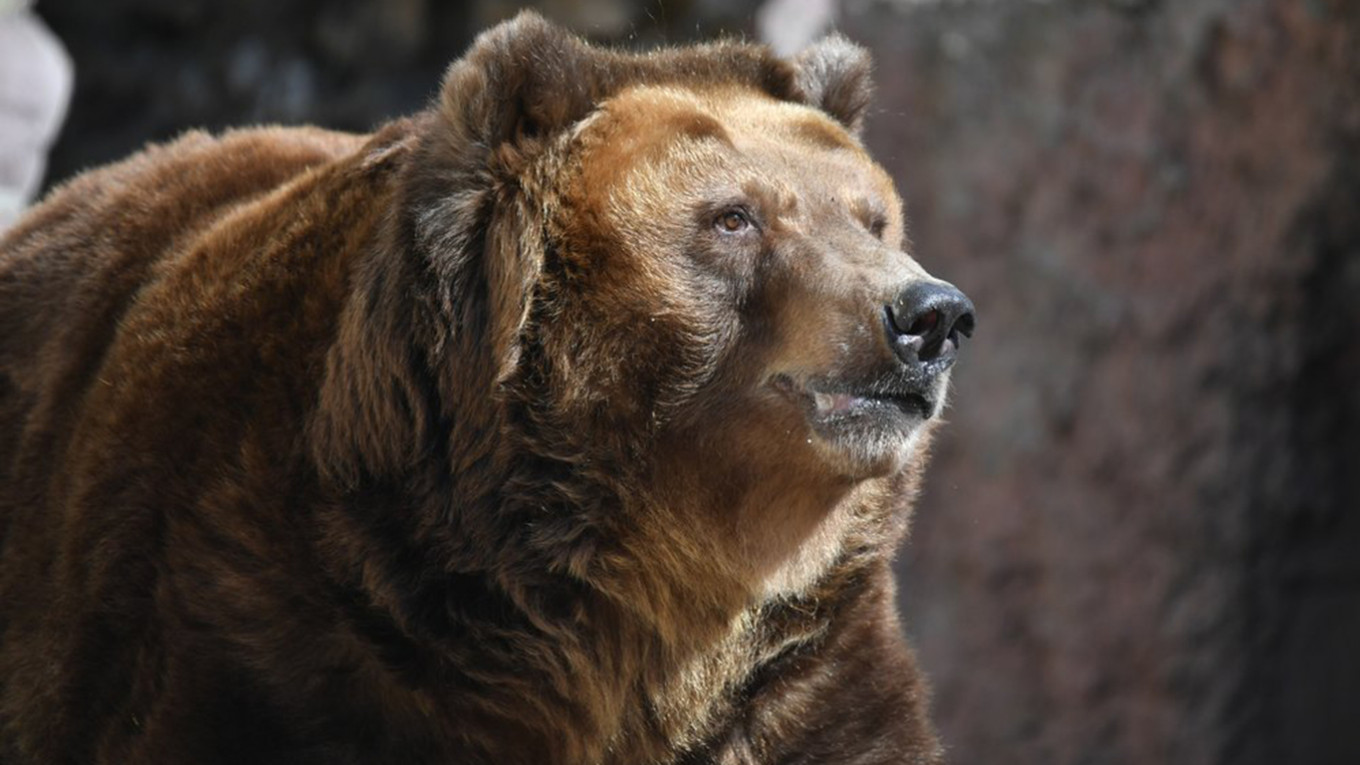
This unseasonably mild winter has caused the in Moscow Zoo bears to wake up earlier than usual, the city’s mayor’s office said Wednesday.
Last year, the two Himalayan bears and one Kamchatka brown bear began coming out of hibernation in April.
“Our zoologists were preparing for the bears to wake up earlier due to the abnormally warm winter,” said Moscow Zoo’s CEO Svetlana Akulova in a statement.
She said Roza, the 28-year-old brown bear, and Alladin and Budur, the 25 and 26-year-old Himalayan bears, will start coming out of their pens at the “Island of the Bears” enclosure Friday.
While bears in the wild have to be ready to readjust as soon as they wake up, the end of hibernation at the Moscow Zoo is a gradual, stress-free process.
Having not eaten a hearty meal in months, the bears are reintroduced to food slowly — starting with small portions of berries and fruits and later moving on to larger portions including meat.
Moscow isn’t the only city to report early bear sightings a month earlier than usual in 2020.
Bears at the Voronezh Zoo south of Moscow woke up and took their first stroll this week, and hunters in Kirov region east of Moscow spotted a wild bear roaming the forests. The early wake-ups in both cases were attributed to the abnormally warm winter.
The warm winter stopped some brown bears from going into hibernation in Siberia last year. Hundreds of brown bears in a southern Russian nature reserve didn’t go into hibernation in 2018.
